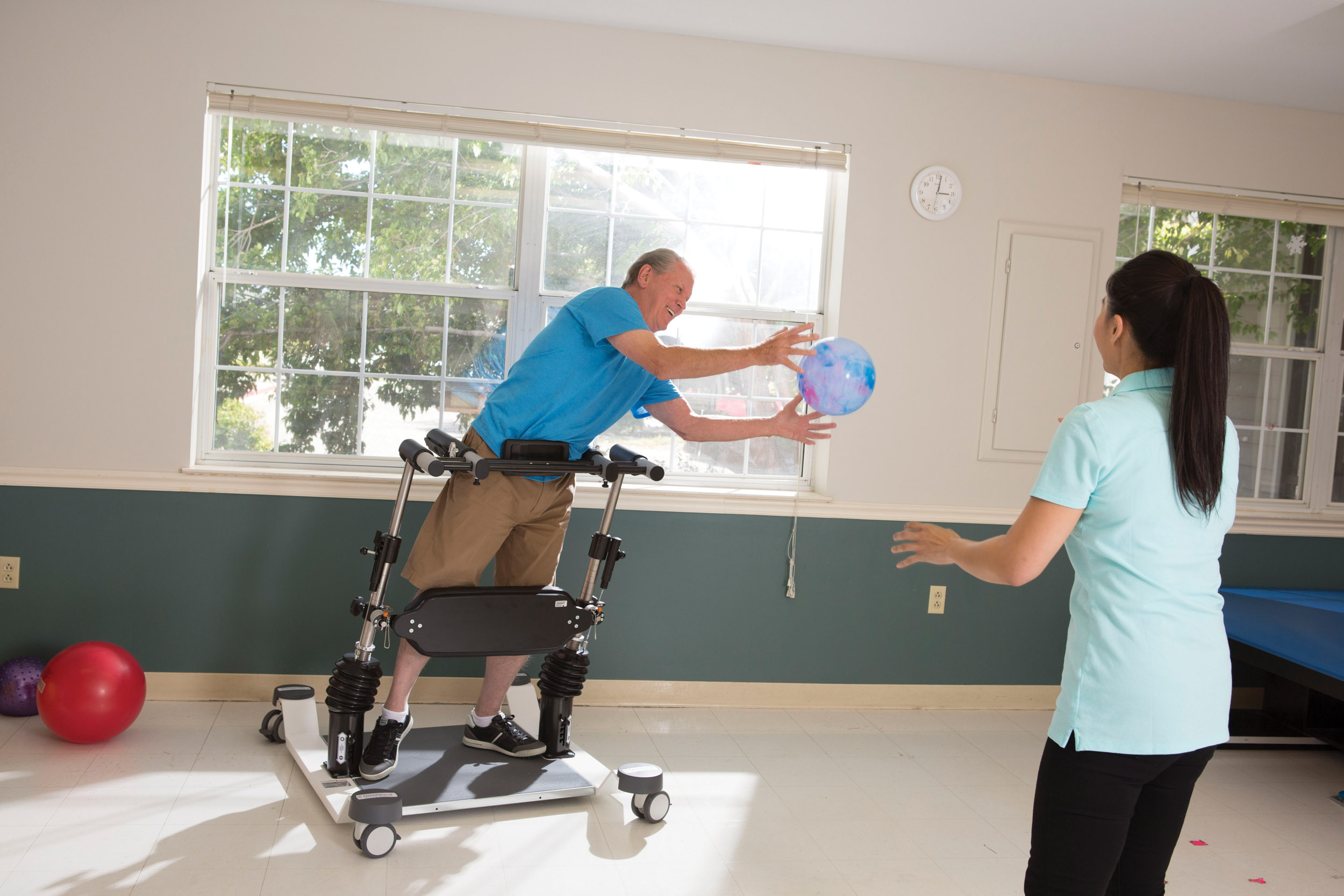
Discover how virtual reality and smart rehab devices like OmniVR®, OmniCycle®, and OmniStand® improve cognition, mobility, and confidence in people with dementia through personalized, evidence-based therapy.

• Promoting lifestyle changes to include regular exercise in pre-symptomatic individuals may have the potential for delaying one-third of dementias worldwide. (De la Rosa et al., 2020)
• A systematic review found strong evidence for the use of physical exercise in people with mild cognitive impairment (MCI) or mild-to-moderate dementia to improve strength, sit-to-stand, step length, balance, walking speed, and endurance. (Lam et al., 2018)
• Individuals with AD who performed six months of aerobic exercise (progressing from 60 to 150 minutes/week) had increased cardiorespiratory fitness resulting in improved memory performance. (Morris et al., 2017)
• In community dwelling older adults with MCI, 12 weeks of VR-based physical and cognitive training using biofeedback improves cognitive function and was superior in improving IADLs compared to traditional physical and cognitive training. (Liao et al., 2020)
OmniVR® engages and challenges cognitive and physical abilities within a virtual environment. Exercises can be simplified to allow for less visual stimulation, as needed for patients with dementia.

- De la Rosa, A., Olaso-Gonzalez, G., Arc-Chagnaud, C., Millan, F., Salvador-Pascual, A., García-Lucerga, C., Blasco-Lafarga, C., Garcia-Dominguez, E., Carretero, A., Correas, A. G., Viña, J., & Gomez-Cabrera, M. C. (2020). Physical exercise in the prevention and treatment of Alzheimer’s disease. Journal of sport and health science, 9(5), 394–404. https://doi.org/10.1016/j.jshs.2020.01.004
- Morris, J. K., Vidoni, E. D., Johnson, D. K., Van Sciver, A., Mahnken, J. D., Honea, R. A., Wilkins, H. M., Brooks, W. M., Billinger, S. A., Swerdlow, R. H., & Burns, J. M. (2017). Aerobic exercise for Alzheimer’s disease: A randomized controlled pilot trial. PloS one, 12(2), e0170547. https://doi.org/10.1371/journal.pone.0170547
- Lam, F. M., Huang, M. Z., Liao, L. R., Chung, R. C., Kwok, T. C., & Pang, M. Y. (2018). Physical exercise improves strength, balance, mobility, and endurance in people with cognitive impairment and dementia: a systematic review. Journal of physiotherapy, 64(1), 4–15. https://doi.org/10.1016/j.jphys. 2017.12.001
- Liao, Y. Y., Tseng, H. Y., Lin, Y. J., Wang, C. J., & Hsu, W. C. (2020). Using virtual reality-based training to improve cognitive function, instrumental activities of daily living and neural efficiency in older adults with mild cognitive impairment. European journal of physical and rehabilitation medicine, 56(1), 47–57. https://doi.org/10.23736/S1973-9087.19.05899-4
Related contents
Find related exciting contents in our media library.
Meet our specialists.
Are you interested in our solutions? Schedule a meeting with a Consultant to talk through your strategy and understand how TEHRA-Trainer can help you to advance rehabilitation.
You need to load content from reCAPTCHA to submit the form. Please note that doing so will share data with third-party providers.
More InformationYou are currently viewing a placeholder content from Turnstile. To access the actual content, click the button below. Please note that doing so will share data with third-party providers.
More Information